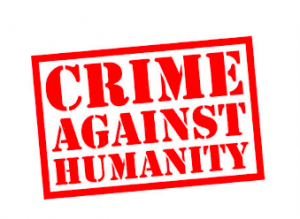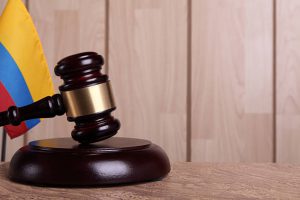 In October 2018, the Central Criminal Court of the Spanish National Court (Audiencia Nacional) rejected the admission of two international rogatory commissions requested by the Argentinian courts in relation to the investigation of crimes against humanity. The alleged crimes relate to torture, murder, forced disappearance of persons and abduction of minors committed in Spain during the Francoist regime in the period between 15 July 1936 and 15 June 1977. These crimes are being investigated in Argentina under the principle of universal jurisdiction. This post analyses the legal arguments posed by the judicial authorities in Argentina and Spain to admit or reject the investigation into crimes against humanity committed during Franco’s dictatorship. Lees verder
In October 2018, the Central Criminal Court of the Spanish National Court (Audiencia Nacional) rejected the admission of two international rogatory commissions requested by the Argentinian courts in relation to the investigation of crimes against humanity. The alleged crimes relate to torture, murder, forced disappearance of persons and abduction of minors committed in Spain during the Francoist regime in the period between 15 July 1936 and 15 June 1977. These crimes are being investigated in Argentina under the principle of universal jurisdiction. This post analyses the legal arguments posed by the judicial authorities in Argentina and Spain to admit or reject the investigation into crimes against humanity committed during Franco’s dictatorship. Lees verder
Auteursarchief: Laura Íñigo Álvarez
The Special Jurisdiction for Peace in Colombia: Challenges and Opportunities for Accountability
 The Special Jurisdiction for Peace in Colombia (SJP) officially opened its doors on 15 March 2018. The SJP is one of the key accountability mechanisms of the Peace Agreement signed between the Government of Colombia and the Revolutionary Armed Forces of Colombia-Popular Army (FARC-EP) on 24 November 2016. In particular, the SJP is the judicial component of the Comprehensive System for Truth, Justice, Reparation and Non-Repetition, and is designed to investigate and prosecute serious violations of human rights and international humanitarian law committed during the Colombian armed conflict. To date 38 judges have been selected to sit at the SJP, 20 of the them are women. Additionally, 14 foreign judges will serve as observers. According to the Legislative Act 01 of 2017, the SJP consists of an Investigation and Indictment Unit, three Trial Chambers, and a Tribunal for Peace, which will have an Appeal’s Division serving as final instance. This article analyses some of the main features of the SJP as well as other complementary mechanisms in the quest for accountability. Lees verder
The Special Jurisdiction for Peace in Colombia (SJP) officially opened its doors on 15 March 2018. The SJP is one of the key accountability mechanisms of the Peace Agreement signed between the Government of Colombia and the Revolutionary Armed Forces of Colombia-Popular Army (FARC-EP) on 24 November 2016. In particular, the SJP is the judicial component of the Comprehensive System for Truth, Justice, Reparation and Non-Repetition, and is designed to investigate and prosecute serious violations of human rights and international humanitarian law committed during the Colombian armed conflict. To date 38 judges have been selected to sit at the SJP, 20 of the them are women. Additionally, 14 foreign judges will serve as observers. According to the Legislative Act 01 of 2017, the SJP consists of an Investigation and Indictment Unit, three Trial Chambers, and a Tribunal for Peace, which will have an Appeal’s Division serving as final instance. This article analyses some of the main features of the SJP as well as other complementary mechanisms in the quest for accountability. Lees verder

